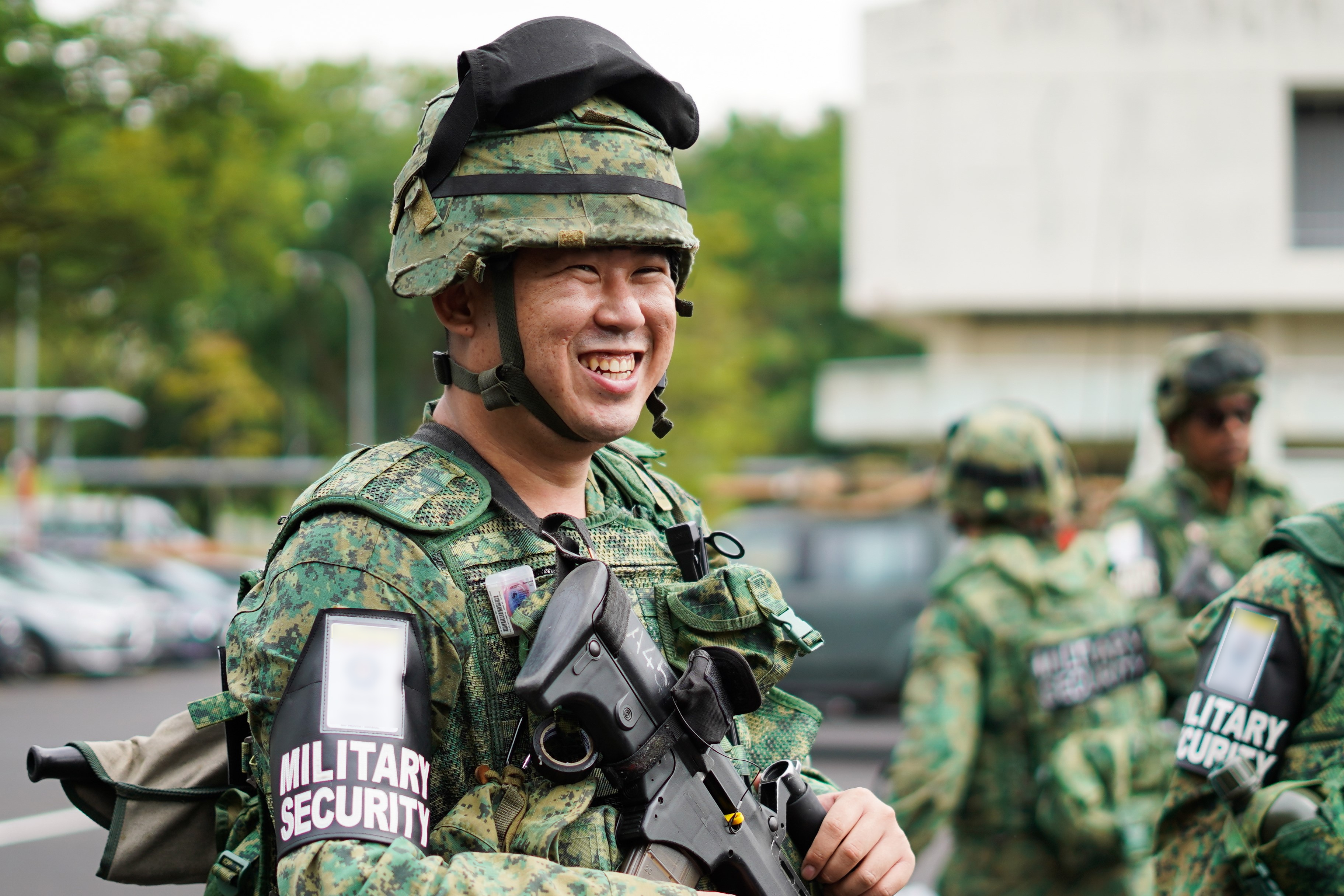
 Web Content Viewer
Web Content Viewer

For this NS55 special, we spoke to CPL(NS) Tan Chin Woo, who was deployed as a Full-time National Serviceman (NSF) for the Humanitarian Assistance and Disaster Relief (HADR) operation in Christchurch, New Zealand, during the 2011 earthquake. Since 1970, the Singapore Armed Forces (SAF) has participated in various HADR missions, both regionally and internationally. During the Christchurch earthquake back in 2011, Our Army deployed over 116 SAF personnel in support of disaster relief and evacuation efforts.
What was your unit when you were deployed for the disaster relief effort in Christchurch, New Zealand, in 2011?
Hi, my name is CPL(NS) Tan Chin Woo. I am from 736th Battalion, Singapore Guards (736 GDS). Back in 2011, I was with the 3rd Battalion, Singapore Guards (3 GDS). Currently, I am doing my 8th ICT (In-Camp Training) with 736 GDS.
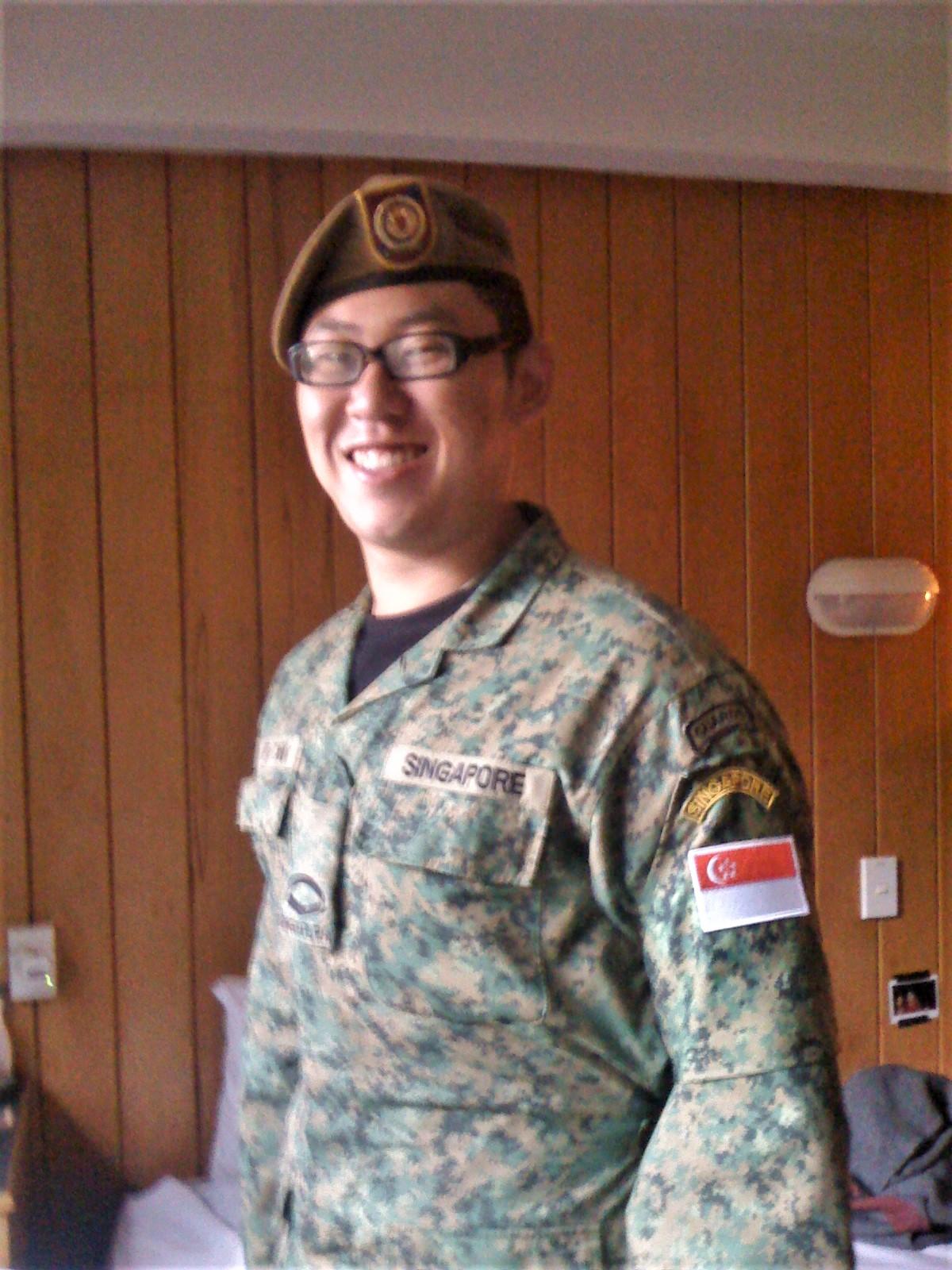
Then-CPL Tan in New Zealand in 2011
How did you get involved in the disaster relief effort in Christchurch?
Before the earthquake happened in Christchurch, I was already in New Zealand, participating in a bilateral training exercise with the New Zealand Defence Force (NZDF). Subsequently, when the earthquake occurred, the unit was then redeployed to assist in the HADR operation alongside the NZDF for around two to three weeks.
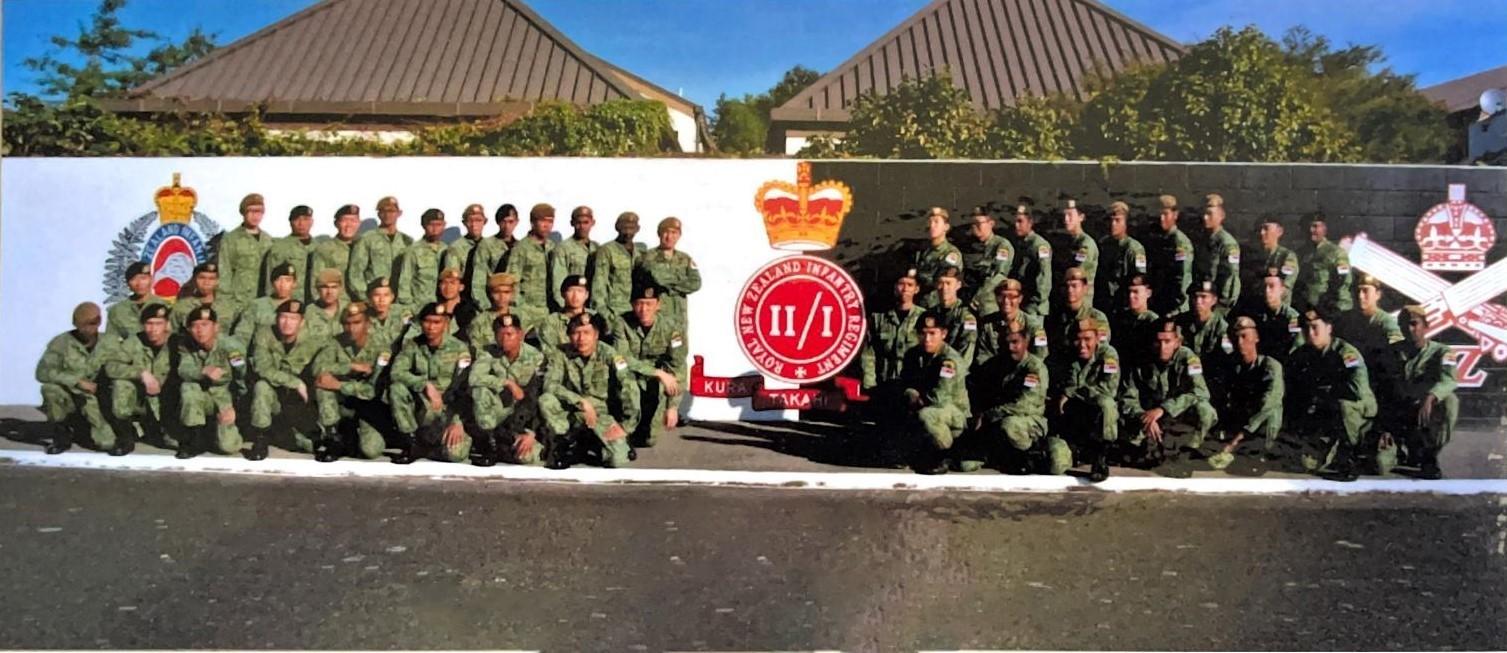
SAF personnel supporting the NZ HADR efforts
What was your task during the disaster relief operation?
I was tasked with carrying out cordon operations of the affected area, ensuring that only relevant personnel were allowed in and out of the affected area. We also served as a security element to deter unauthorised personnel from entering the area.
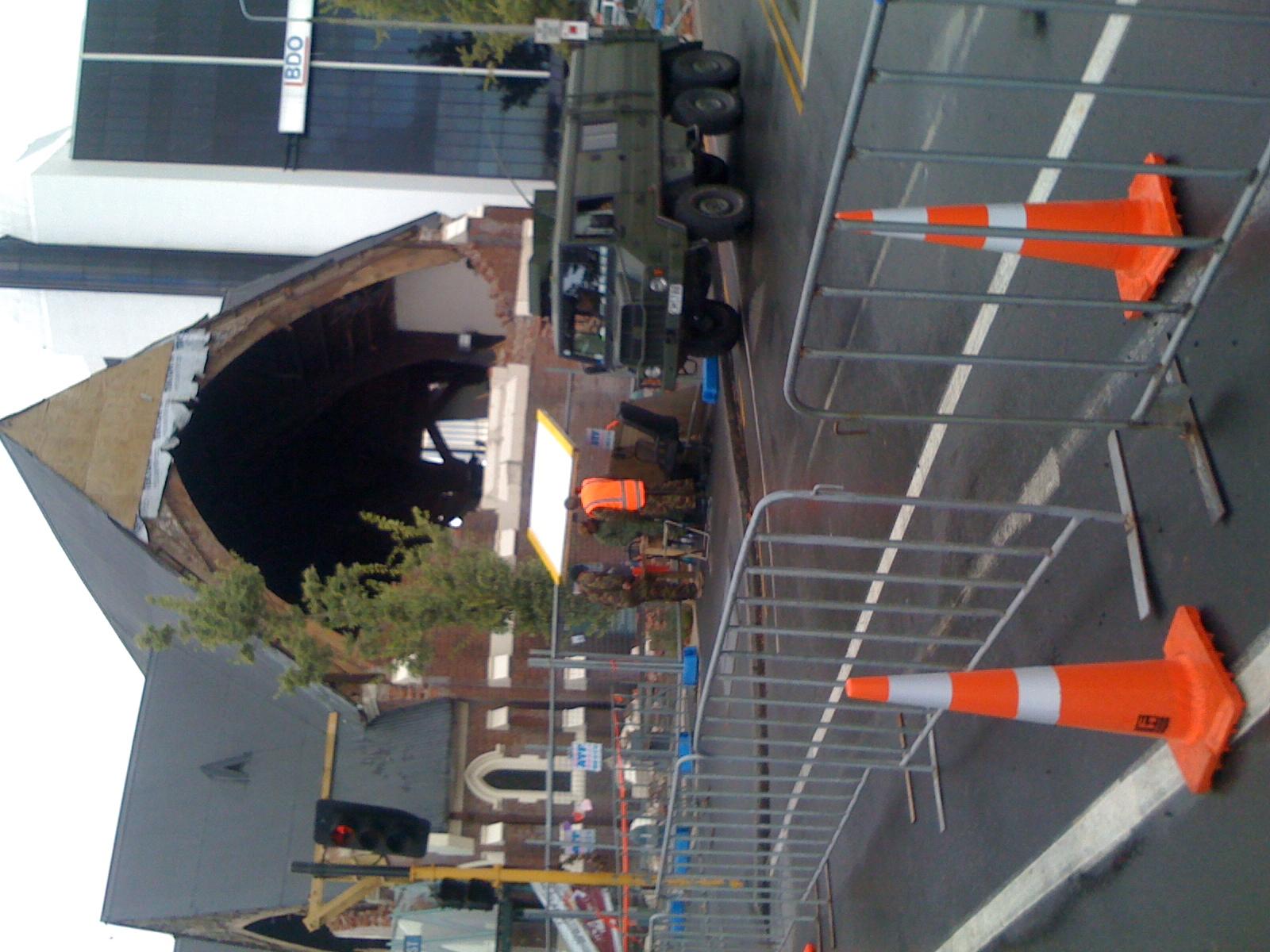
Affected areas were cordoned off to prevent members of the public from entering
Could you describe what you saw on the ground?
What I saw when I was first deployed at the security checkpoint was not what I expected. It was not like in the movies where everything had tumbled down, and people were lying everywhere, but the buildings were structurally unsound, and some of the buildings were tilted. You could see that the insides of the building had collapsed while the exterior might still be standing. As we ventured further into the affected areas, we could see cracks on the road.
As our unit was not on-site during the initial earthquake, we did not see the initial reaction of the people there. But when we were there subsequently, we could see that people were dejected and upset. However, it was not long before the people decided to move forward and did what they could to help others. They were even taking the initiative to support us even though we were there to help them.
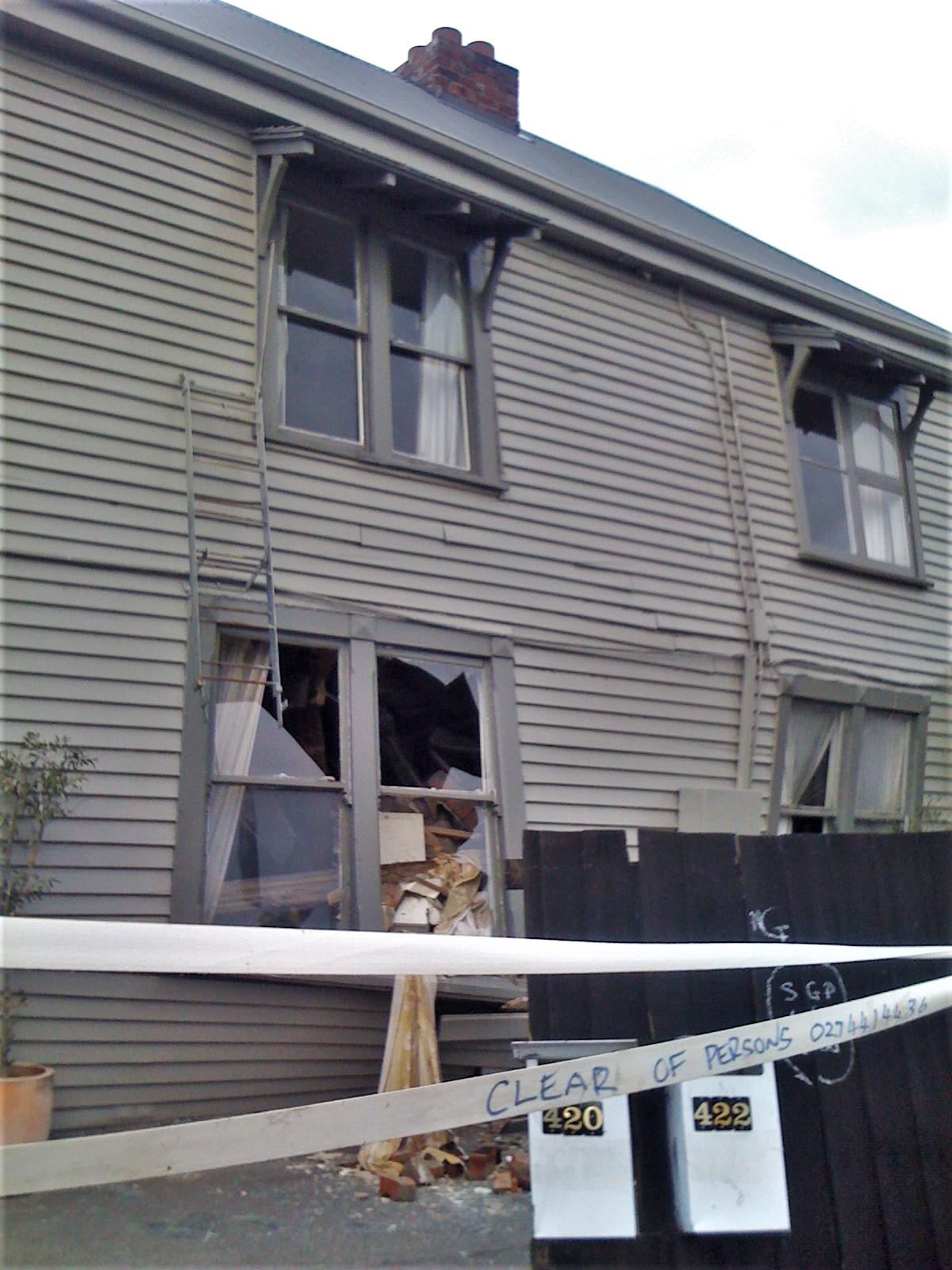
Buildings were structurally-unsound and had internal damages
What were the challenges faced during the operation, and how did you overcome them?
I faced a number of challenges during the operation. It was really cold at night, and despite wearing two layers of gloves and three layers of clothes underneath, it was bone-chilling cold. Before we arrived in New Zealand for the bilateral exercise, we already went through some weather climatisation training because we knew it would be cold. But it was still something you are not used to, coming from Singapore where it is always warm weather, 24/7. Luckily, the locals very much appreciated our help during that time and offered us warm food and drinks throughout the night even as we carried out our tasks.
What are some emotions felt during the relief operation?
Personally, I was humbled by the entire experience because it was not something that we would experience in Singapore, seeing how geographically, we are relatively sheltered from natural disasters. Other than that, personally, the experience was not much about being frightened; it was more of just trying to help and getting the job done. Maybe we were thinking about an aftershock that might happen, but it was far from my mind. What was important was the task at hand.
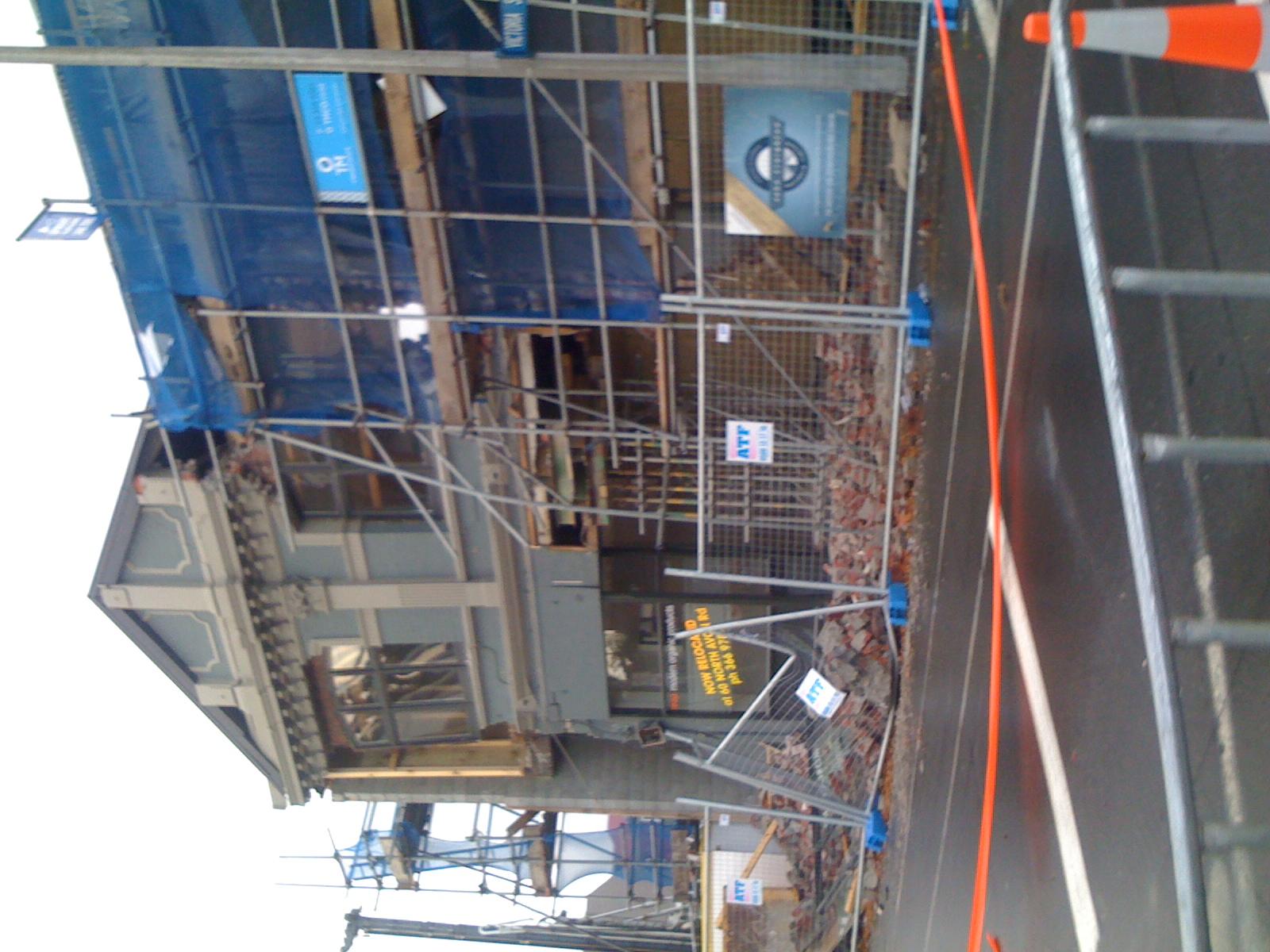
Newly constructed buildings were damaged during the earthquake
Were there any victims of the 2011 Christchurch earthquake that left a deep impression on you?
There was a particular group of people from the local church. They went to most of the checkpoints to give us a letter of appreciation for helping them. I still have that letter to this day.
Another one that I felt was very heartwarming was this old lady whose house was beside my checkpoint. When I arrived for duty, she was just there to pack out some clothes and items because she needed to move out to some place that was much safer. She came over and said we could use her house to have a break because it was very cold. This was something unexpected that I encountered over there in New Zealand, and it was very heartwarming.
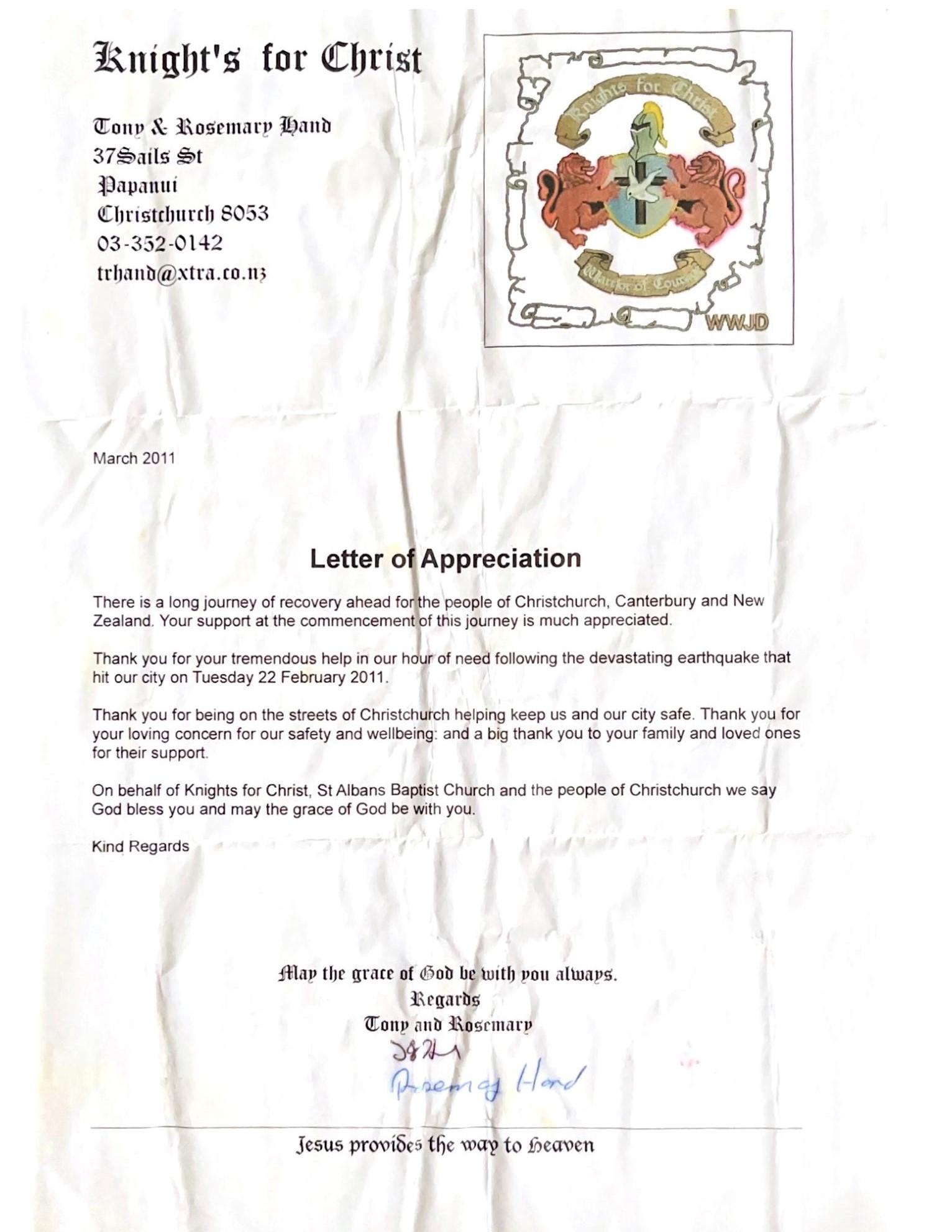
The letter of appreciation that was given to CPL(NS) Tan
What were some things which got you through the NZ HADR operation despite the freezing weather?
Hot showers! I cannot remember how long the shifts were, but they felt long. I remember coming back tired each day, and the only thing you wanted to do was shower and head to bed. If you think about it from a broader perspective, you are trying to get the job done as you are representing Singapore and would want to portray yourself as a professional soldier on the global stage. That aside, it was not really a big issue. It was more of doing things properly, making sure that people could come in to get things done safely. I think everyone had their own struggles. Personally, I just took things one day at a time.
What are some key takeaways after participating in the 2011 NZ relief efforts?
If anything, it highlighted the importance of National Service (NS) in our country. Having a military does not necessarily mean we only need to prepare for war or an attack against us. A military organisation has all the means to contribute to a HADR operation whereby personnel have been trained with a very niche skill of being able to handle all situations required during the operation. But if anything like that should happen to us, we do it not because we can, but because we should.
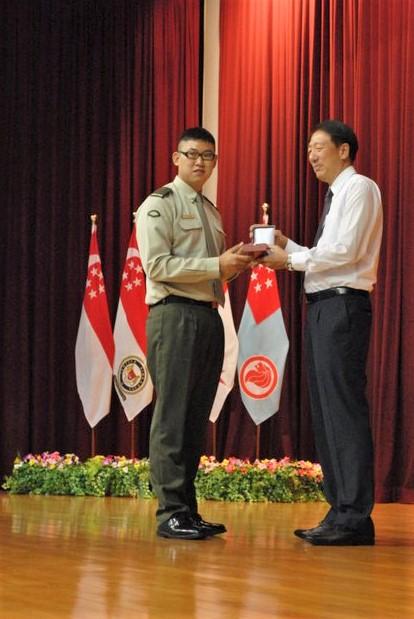
CPL(NS) Tan receiving the Overseas Service Medal from then-Deputy Prime Minister and Minister for Defence, Mr Teo Chee Hean, in 2011
Do you think it is important for Singapore to continue helping out with disaster relief / humanitarian efforts in other countries?
I think that Singapore is in a good position to provide help in HADR operations because it helps to hone our abilities during peacetime operations. It provides our force with experiences outside of warfighting. At the same time, it exposes our personnel to intangible and invaluable experiences that one might not be able to acquire if we were just to base our training on local exercises.
Furthermore, back then and even now, we cannot take this peace and stability in our region for granted. It is very prevalent in other countries. If you look at it right now, in 2022, there is a lot of instability worldwide, especially with the pandemic. Right now, Singapore is in a very good position geographically as we are sheltered from a lot of natural disasters. But if anything does happen, we need to be ready. We cannot be complacent with our current situation.
Do you think there are benefits for our soldiers to be deployed for overseas operations during National Service?
If I look back on my experience when I was 18 or 19 years old, it was quite surreal that I got to take part in these operations. For me, it is not so much that NS is a hassle; it is more of doing the best of what you have right now and getting the best experience of it. To me, taking part in this operation was the best experience I could get out of NS. For the newer generation, it is important for them to explore this kind of thing as it is an entirely new kind of experience apart from running in camp and going outfield or doing a route march. It is a different thing altogether. You are putting the things you learnt in a real-world situation, so it sheds new light on how the world works.
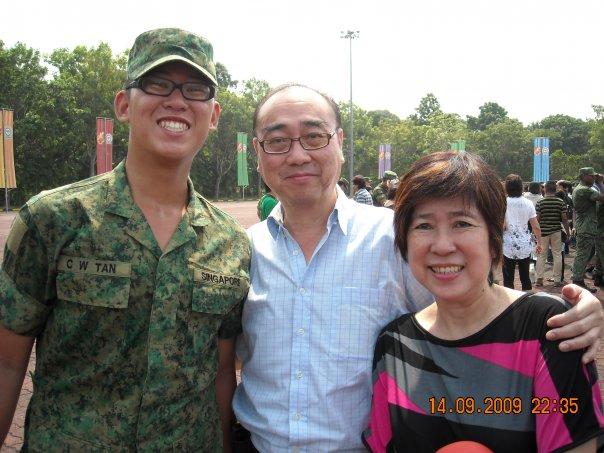
CPL(NS) Tan with his family during his BMT Graduation Parade
How has your NS journey been thus far?
I am enjoying my NS journey every step of the way. Going through ICTs and being an NSman is definitely very important to the defence of our nation. NSmen make up a big majority of the armed forces and provide the SAF with a much-needed boost in manpower. ICTs are also a good gathering for NSmen, to catch up with one another as well as to refresh our technical knowledge. Every time we book in on the first day, it is like a reunion dinner again, minus the ang bao. We may not be as fit as before, but we make up for it in knowledge and experience.
Overall, my NS journey has been very meaningful. If I could, I would continue serving as long as I can, as long as I am able-bodied. I think it has been a very meaningful 9 years plus another 2 years, 11 years of NS. To me, it is not just a gathering of friends; especially this year, we are on standby for the entire duration of the ICT. It gives us a fresh perspective that we can be called on to defend Singapore at any time. It is very important for nation-building as well since Singapore is such a small country, and we form the majority of the armed forces. It is very crucial that everyone does their part.
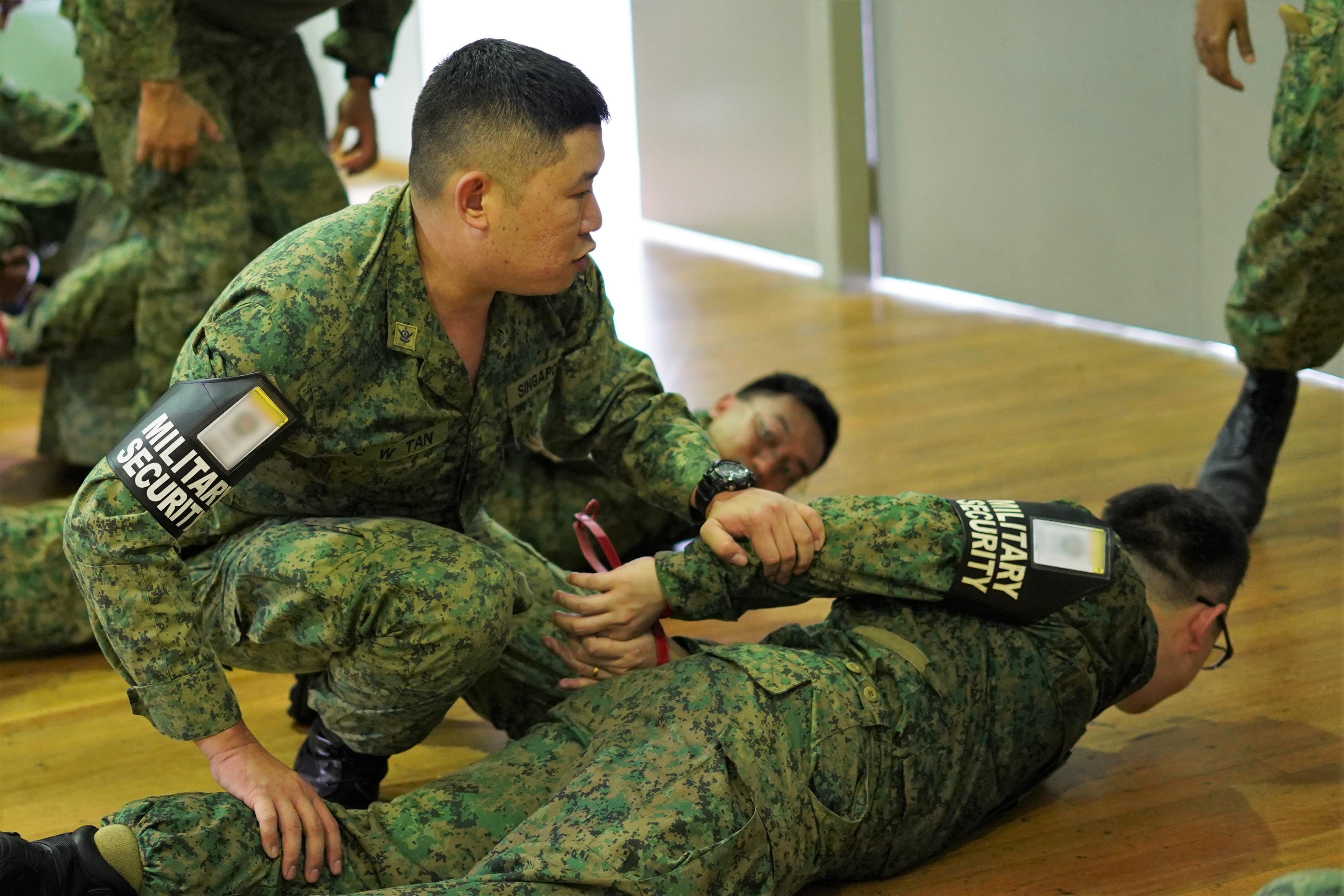
CPL(NS) Tan in his refresher training on search and arrest drill during his ICT in September 22
Written by: LCP Scott Pang (Army News)
Photography by: LCP David Goh (Army News)
Photographs Contribution: CPL(NS) Tan Chin Woo
